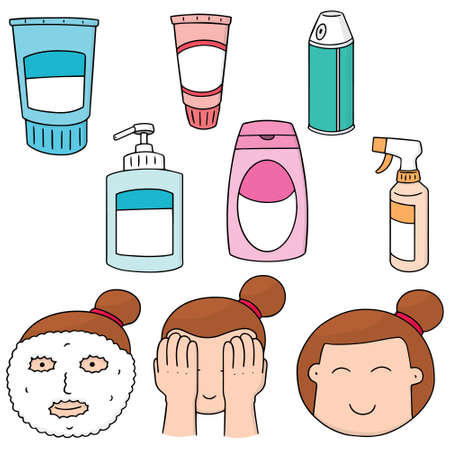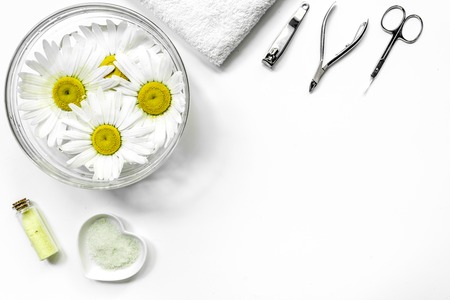Introduction to Sustainable Beauty in the UK
The British beauty industry is experiencing a remarkable shift as sustainability becomes a driving force for innovation and change. Across the UK, both brands and consumers are increasingly aware of the environmental impact of beauty products, leading to a significant rise in eco-conscious choices. This focus on sustainability isn’t just a passing trend—it reflects a deeper commitment among British consumers to protect the planet while enjoying their favourite skincare and cosmetic products. From high-street retailers to luxury brands, there’s a collective movement towards reducing waste, using responsibly sourced ingredients, and adopting eco-friendly packaging solutions. As UK shoppers demand greater transparency and ethical practices, sustainable beauty has transformed from a niche interest into an essential standard for the industry. The table below highlights key statistics showcasing this growing trend:
| Aspect | 2019 | 2023 |
|---|---|---|
| Percentage of UK consumers considering sustainability when buying beauty products | 34% | 61% |
| UK beauty brands with eco-friendly packaging initiatives | 12% | 48% |
This surge in sustainable beauty is not only reshaping consumer expectations but also setting new benchmarks for the entire British beauty sector.
2. The Environmental Impact of Traditional Beauty Packaging
In recent years, the ecological footprint of conventional cosmetic packaging has come under increasing scrutiny within the British beauty industry. Traditional packaging—often made from single-use plastics, mixed materials, and non-recyclable components—has contributed significantly to landfill waste and pollution in the UK. According to government statistics, millions of tonnes of plastic waste are generated annually, a substantial portion stemming from personal care and beauty products.
Ecological Footprint of Conventional Packaging
| Packaging Material | Environmental Impact | Recyclability (UK context) |
|---|---|---|
| Single-use Plastics | Long decomposition time, microplastics pollution | Low (often not recyclable through curbside collection) |
| Glass | High energy cost in production and transport | High (widely recycled but heavy and energy-intensive) |
| Composite Materials (plastic + metal/foil) | Difficult to separate for recycling, often ends up in landfill | Poor (not accepted by most recycling facilities) |
| Pump Dispensers & Applicators | Non-recyclable parts increase waste volume | Poor (mixed materials hinder processing) |
Why British Brands Are Rethinking Their Materials
The mounting pressure from environmentally conscious consumers, as well as new UK regulations on plastic use and extended producer responsibility schemes, is compelling British beauty brands to reconsider their approach to packaging. Beyond regulatory compliance, many brands recognise that sustainability now forms a key part of their identity and consumer appeal. This shift is seen not only in independent labels but also among high-street favourites and luxury houses. As the demand for eco-friendly alternatives grows, British brands are innovating with biodegradable materials, refillable systems, and minimalist designs to reduce their overall environmental impact.

3. Eco-Friendly Packaging Innovations
The British beauty industry is at the forefront of sustainable packaging, with many brands pioneering innovative solutions that reflect the growing demand for eco-conscious choices. From biodegradable materials to refillable systems, these advancements are not just a passing trend—they are reshaping how consumers interact with their favourite products. Below, we explore the most prominent eco-friendly packaging innovations now embraced by UK beauty brands:
Biodegradable Materials
Leading names in British beauty are turning to biodegradable alternatives such as plant-based plastics, compostable films, and paperboard derived from responsibly managed forests. These materials naturally break down over time, significantly reducing landfill waste and environmental impact.
Refillable Packaging Systems
The refill revolution is gaining momentum across the UK, with both heritage and indie brands offering refill stations in flagship stores or providing easy-to-use refill pouches online. This approach minimises single-use plastic and allows consumers to reuse their original containers multiple times—perfect for those who value both style and sustainability.
Recyclable Packaging
Recyclability is another key focus area. Brands are opting for mono-material designs (such as 100% aluminium or glass) that are easier to recycle within the UK’s existing waste management infrastructure. Clear labelling ensures that consumers know exactly how to dispose of each component responsibly.
Comparison of Sustainable Packaging Solutions in the UK Beauty Industry
| Packaging Type | Main Benefits | Notable UK Brands |
|---|---|---|
| Biodegradable | Reduces landfill waste; made from renewable resources | Lush, UpCircle |
| Refillable | Lowers single-use plastic; cost-effective for consumers | The Body Shop, Charlotte Tilbury |
| Recyclable | Easily processed in UK recycling streams; clear disposal instructions | REN Clean Skincare, Neal’s Yard Remedies |
The British Approach: Local Innovation Meets Global Responsibility
UK beauty brands are not only responding to consumer expectations but also setting international standards for sustainability through inventive packaging solutions. By investing in biodegradable, refillable, and recyclable options, they demonstrate a commitment to both local communities and the planet at large—a movement that continues to transform the British beauty landscape.
4. British Brands Leading the Change
In recent years, a wave of British beauty brands have embraced sustainability, pioneering eco-friendly packaging solutions that are reshaping industry norms and customer expectations. These trailblazers are not only reducing their environmental footprint but also setting new standards for transparency and innovation across the UK beauty sector.
Case Studies: Eco-Conscious Packaging in Action
| Brand | Eco-Friendly Initiatives | Industry Impact |
|---|---|---|
| Lush | Package-free products, recycled pots, Bring It Back return scheme | Encouraged mainstream adoption of zero-waste shopping experiences in high streets nationwide |
| REN Clean Skincare | 100% recyclable packaging, ocean plastic bottles, refill stations in flagship stores | Set benchmarks for closed-loop systems and inspired global brands to follow suit |
| Neal’s Yard Remedies | Glass bottles, FSC-certified cartons, carbon-neutral operations | Pioneered holistic sustainability, influencing indie and heritage brands alike |
| The Body Shop UK | Refill stations, recycled plastics, Community Fair Trade packaging materials | Drove mass-market accessibility to sustainable packaging through nationwide rollouts |
Innovation Meets Tradition: How British Heritage Inspires Modern Sustainability
These brands exemplify how UK-based companies blend tradition with innovation—leveraging local sourcing, centuries-old apothecary practices, and cutting-edge technology to deliver eco-conscious solutions without sacrificing luxury or efficacy. By prioritising circularity and community engagement, these leaders are redefining what it means to be a responsible beauty brand in Britain today.
The Ripple Effect Across the Industry
The pioneering actions of these British brands have created a ripple effect, encouraging both emerging startups and established names to invest in sustainable packaging. As consumers become more environmentally aware and regulatory pressures increase across the UK and Europe, these home-grown innovators continue to set the pace for the entire beauty industry.
5. Shifting Consumer Attitudes in the UK
The eco-conscious revolution within the British beauty industry is being fuelled by a noticeable shift in consumer attitudes. Today’s UK shoppers are no longer satisfied with products that simply enhance their appearance—they demand transparency, sustainability, and ethical responsibility from their favourite brands. This new wave of conscientious consumers is reshaping how brands design, package, and market beauty products across Britain.
British Consumers Leading the Green Charge
Recent studies reveal that over 60% of UK beauty buyers consider sustainable packaging an important factor when making purchasing decisions. This heightened awareness has been shaped by an increased exposure to climate change reports, national recycling campaigns, and a strong cultural affinity for environmental stewardship. Social media activism and celebrity endorsements have further propelled green beauty into the mainstream, making eco-friendly choices aspirational as well as essential.
Cultural Drivers Behind Greener Choices
Several distinct cultural factors set the British beauty market apart:
| Factor | Impact on Beauty Choices |
|---|---|
| Environmental Awareness | UK consumers are highly attuned to issues like plastic waste and carbon footprint, prompting them to seek out recyclable or refillable packaging. |
| Regulatory Influence | Tougher regulations on single-use plastics and governmental support for sustainable business practices reinforce green purchasing behaviour. |
| Community Ethos | The British tradition of ‘doing your bit’ encourages collective responsibility—opting for eco-friendly products aligns with social values. |
| Education & Media | Widespread access to information about sustainability empowers shoppers to make informed choices and hold brands accountable. |
The Demand for Authenticity
It’s not enough for brands to claim sustainability; British consumers expect genuine commitment backed by tangible actions. Labels like “cruelty-free,” “biodegradable,” and “recyclable” are scrutinised closely, with savvy shoppers quick to spot—and reject—greenwashing tactics. As a result, brands investing in transparent supply chains, innovative packaging materials, and robust recycling schemes are earning long-term loyalty from UK customers.
6. The Future of Sustainable Beauty in Britain
As the British beauty industry continues to embrace sustainability, the future of eco-friendly packaging looks both innovative and promising. Brands are not just responding to consumer demand; theyre anticipating it, experimenting with cutting-edge materials and pioneering new business models that could set global standards. Here’s what’s on the horizon for sustainable beauty packaging in the UK:
Emerging Trends Shaping Eco-Friendly Packaging
| Trend | Description | Potential Impact |
|---|---|---|
| Refillable Solutions | Brands introducing refill stations in stores and offering reusable containers. | Reduces single-use waste, encourages repeat custom, and enhances brand loyalty. |
| Biodegradable Materials | Packaging made from plant-based or compostable materials such as bamboo or seaweed. | Cuts down landfill waste and aligns with zero-waste goals. |
| Minimalist Design | Simplified packaging using fewer resources and less ink. | Lowers carbon footprint and appeals to eco-conscious consumers. |
| Smart Labelling & Transparency | QR codes linking to detailed information about sourcing, recyclability, and carbon impact. | Empowers consumers to make informed choices and builds trust in brands. |
The Role of Innovation and Regulation
The UK government is strengthening its commitment to environmental responsibility through policies like the Plastics Packaging Tax and Extended Producer Responsibility schemes. This regulatory landscape is pushing brands to innovate rapidly—expect to see more partnerships with green-tech startups, investments in closed-loop recycling systems, and collaborations within the industry to standardise eco-friendly practices.
Consumer Behaviour: A Driving Force
The British public’s appetite for sustainable products continues to grow. According to a recent survey by The British Beauty Council, over 65% of UK shoppers would pay more for beauty products with sustainable packaging. This shift in consumer mindset is compelling brands—from high street favourites like Boots to luxury names such as Neals Yard Remedies—to rethink their approach from design to distribution.
Looking Ahead
The future of sustainable beauty in Britain hinges on collaboration—between brands, suppliers, policymakers, and most importantly, consumers. As technology advances and public awareness deepens, we can expect a new era where beautiful packaging doesn’t cost the earth. In short, eco-friendly packaging isn’t just a trend; it’s poised to become an essential part of British beauty culture for years to come.


